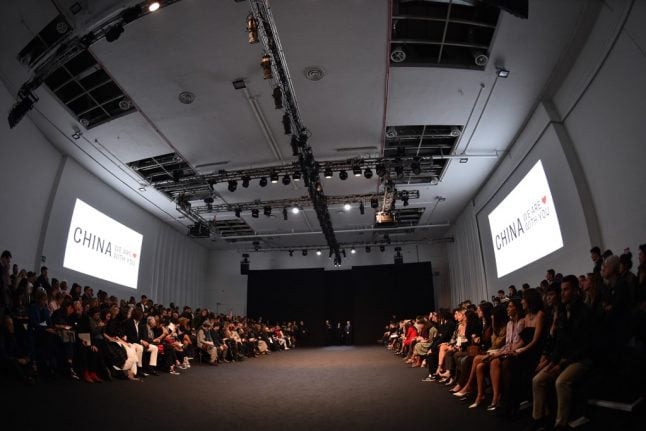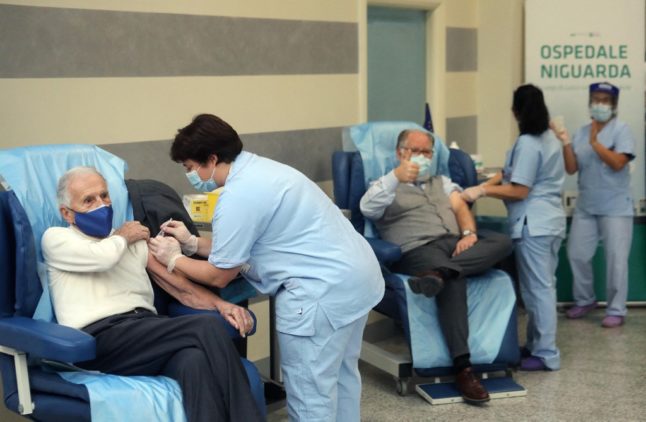Milan Fashion Week kicked off on Tuesday overshadowed by the coronavirus outbreak, with thousands of Chinese designers, buyers and journalists ditching the event.
China accounts for over a third of global luxury consumption and the crisis has already cost Italy's fashion sector millions of euros.
READ ALSO:
- How concerned should you be about the coronavirus in Italy?
- First Italian national tests positive for coronavirus
- Coronavirus: Spike in reports of 'racist' abuse of Chinese people in Italy
The closure of production workshops of Chinese brands in China has also made it impossible to meet the production deadlines for the shows.
But the show must go on, and for five days, Italy's biggest fashion names such as Armani, Fendi, Prada, Versace and Gucci will showcase their Autumn-Winter 2020 Women's collections.

Models on the catwalk on Tuesday for the “China, We are With You” event at Milan Fashion Week 2020. Photo: AFP
The event began Tuesday evening with a “China, We are With You” fashion show from Chinese designer, Han Wen, who is based in New York.
However, the three Chinese designers with fashion shows scheduled – Angel Chen, Ricostru and Hui – have pulled out.
Authorities are preparing for all eventualities in Italy, where three cases of the new coronavirus have been detected so far.
Italy was the first European country to ban all flights to and from China last month after declaring a state of emergency over the outbreak
The virus, which has already killed nearly 1,900 people around the world, mostly in China, also cast a pall over London's Fashion Week.
That show, which began on Friday and lasted five days, was also marked by “significantly reduced” attendance, organisers said.
The National Chamber for Italian Fashion said the economic impact of the epidemic was “currently not calculable.”
Using the 2003-2004 SARS outbreak as a guide, it said an “optimistic” estimate would be for Italian exports to decline by a minimum of 100 million euros ($108 million) in the first quarter of 2020 and 230 million “in the event of a prolonged crisis” for the first half of the year.

New York-based Chinese designer Han Wen at Milan Fashion Week 2020. Photo: AFP
The Chinese absence will be noticeable not just around the catwalks but behind the scenes, in showrooms where international buyers come to order pieces that will end up a few months later in luxury boutiques around the world.
To make up for the gap, the chamber has launched an assortment of digital means to connect buyers in China by giving them access to the catwalks in streaming but also behind the scenes.
The COVID-19 outbreak – as the World Health Organization has formally named it – has also hit the sector's supply chain, with textile manufacturing plants shutting down in China, causing significant delays in the delivery of collections.



 Please whitelist us to continue reading.
Please whitelist us to continue reading.
Member comments